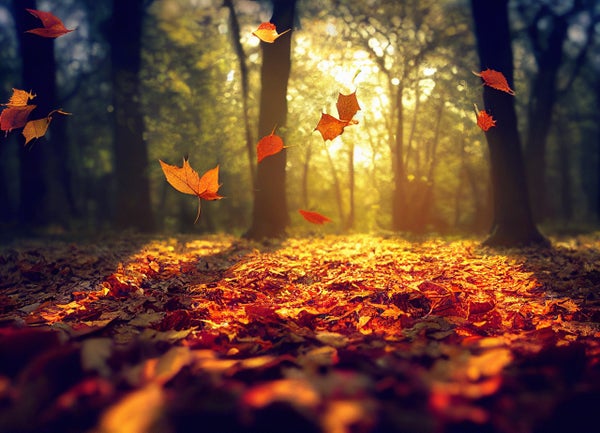September 20, 2024
2 min read
Moral Judgments May Shift with the Seasons
Certain values carry more weight in spring and autumn than in summer and winter

Jasmin Merdan/Getty Images
As leaves fall, snow sweeps in or flowers blossom, humans change in measurable ways, too. Research suggests a range of psychological phenomena—such as our emotional state, diet and exercise habits, sexual activity and even color preferences—fluctuate throughout the year. And now a study in the Proceedings of the National Academy of Sciences USA demonstrates how moral values can also shift.
For the study, researchers analyzed more than 230,000 online survey responses—a decade’s worth—from people in the U.S., along with smaller groups in Canada and Australia. The questions were based on a standardized framework social scientists use to assess people’s judgments of right and wrong. This framework, called moral foundations theory, sets up a taxonomy of “five pretty fundamental values that shape human social behavior,” says lead author Ian Hohm, a psychology graduate student at the University of British Columbia.
The framework considers loyalty (devotion to one’s own group), authority (respect for leaders and rules), and purity (cleanliness and piety) to be “binding” values that promote group cohesion and conformity. These principles, often associated with political conservatism, consistently received weaker endorsements in summer and winter. And in summer, the more extreme the seasonal weather differences, the more pronounced the effect. (An additional surveyed group in the U.K. showed only the changes in summer.)
On supporting science journalism
If you’re enjoying this article, consider supporting our award-winning journalism by subscribing. By purchasing a subscription you are helping to ensure the future of impactful stories about the discoveries and ideas shaping our world today.
Care (preventing harm to others) and fairness (equal treatment) are considered “individualizing” values pertaining to individual rights. These principles showed no consistent seasonal pattern.
One explanation for seasonal swings could be anxiety. Using a 90,000-respondent survey dataset, as well as data on Internet search frequencies, the researchers found that anxiety levels also peak in spring and fall. “There is a close relationship between anxiety and threat,” says University of Nottingham psychologist and study co-author Brian O’Shea. Other studies have shown that people who feel more vulnerable to seasonal illnesses tend to be more distrustful, more xenophobic and more likely to conform to majority opinion. “When you’re threatened,” O’Shea explains, “you then want to get protection from your in-group.” These findings suggest seasonal timing could affect jury decisions, vaccination campaigns—and even election outcomes, the study authors say.
Howard University psychologist Ivory A. Toldson, whose work involves practical applications of statistics, notes that the study relies on data from “Western, educated, industrialized, rich and democratic (WEIRD)” populations and cautions that generalizing from such results runs the risk of “overlooking the unique moral experiences of marginalized groups.” Hohm agrees that such a pattern wouldn’t affect everyone the same way but emphasizes that the study highlights the seasons’ effect on human psychology.
“One thing that this article is showing is that we are very seasonal creatures,” says Georgetown University School of Medicine psychiatrist Norman Rosenthal, a leading expert on seasonal affective disorder who coined the term in the 1980s. “The internal state definitely affects your behavior.”
